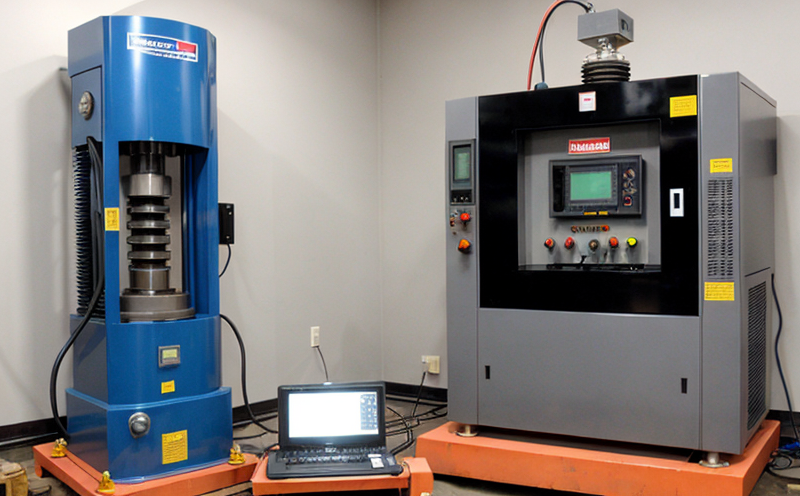EN 2591 604 Mechanical Shock Testing for Aerospace Components
The EN 2591-604 standard is a critical protocol in the aerospace industry, designed to evaluate the resilience of components subjected to mechanical shock. This testing ensures that parts can withstand harsh environmental conditions and operational stresses without failure. The aerospace sector operates under stringent safety regulations due to its high-stakes environment, making compliance with such standards essential.
The standard outlines a series of tests aimed at simulating real-world scenarios where components may face sudden force impacts. These tests are crucial for ensuring the integrity of critical systems and preventing potential failures that could lead to catastrophic outcomes. The mechanical shock testing process involves subjecting specimens to controlled shock events using specialized equipment, which replicates the dynamic loading conditions encountered in flight.
The testing procedure typically begins with a detailed analysis of the component's intended use within an aerospace system. This includes understanding the potential sources of mechanical shock and the expected environmental factors it might encounter. Based on this information, appropriate test parameters are selected to accurately simulate these conditions. Specimen preparation is critical; it involves ensuring that the sample reflects the actual material properties and geometry as closely as possible.
The testing apparatus used in EN 2591-604 includes sophisticated shock testing machines capable of delivering precise, high-speed impacts. These machines are designed to control the direction, magnitude, and duration of the applied shocks, allowing for a comprehensive evaluation of the component's performance under various shock conditions. The results of these tests provide critical insights into the component's durability and reliability.
One of the key aspects of this testing is the analysis and interpretation of the test data. This involves comparing the observed behavior of the specimen against predefined acceptance criteria specified in the standard. If a component passes all prescribed tests, it demonstrates its capability to withstand mechanical shock without compromising performance or safety. Conversely, failure during any stage indicates areas where improvements are necessary.
The importance of this testing cannot be overstated, especially considering the potential consequences of component failure in aerospace applications. By adhering strictly to EN 2591-604, manufacturers and suppliers can ensure that their products meet the highest safety standards, thereby protecting lives and assets.
- Benefits: Ensures compliance with international regulations; enhances product reliability; minimizes risks associated with mechanical shock failures; supports continuous improvement of design and manufacturing processes.
- International Acceptance and Recognition: Widely accepted in the aerospace industry; recognized by regulatory bodies worldwide; promotes global interoperability and standardization.
Applied Standards
The EN 2591-604 mechanical shock testing protocol is part of a broader suite of standards that govern the testing and certification of aerospace components. These standards are designed to ensure that products meet stringent quality and safety requirements, reflecting the industry's commitment to innovation and excellence.
EN 2591-604 specifically addresses the mechanical shock testing of components used in aircraft structures, engines, and avionics systems. It is one among several standards that collectively form a robust framework for quality assurance within the aerospace sector. Other relevant standards include AS 803, MIL-SPECs (e.g., MIL-HDBK-217), and ASME codes, which cover various aspects of material selection, component design, and manufacturing processes.
By adhering to these standards, manufacturers can ensure that their products are not only reliable but also compatible with international safety regulations. This compliance is crucial for gaining market access in different regions and maintaining a positive reputation among industry stakeholders.





